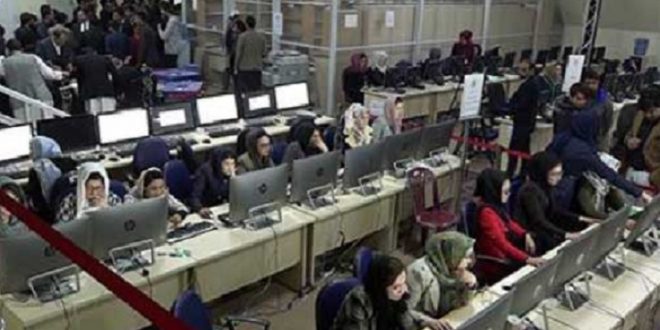With each passing day, the electoral crisis is deepening and getting complicated. But the resumption of peace talks between the Taliban and the US in Doha on Saturday – almost two months after President Donald Trump abruptly halted the process – snatched all attention and has thus downplayed the critical situation Afghanistan is going through in terms of the election. It’s been more than two months since the presidential election was conducted but the electoral management body hasn’t been able to announce the preliminary results, mainly because it hasn’t satisfied some presidential contenders who accuse the Independent Election Commission (IEC) of favoritism and dub the whole democratic process as fraudulent. Thousands of supporters of CEO Abdullah Abdullah’s and Gulbuddin Hekmatyar – both of whom ran for president in the September’s election – have protested several times across the country, demanding fraudulent votes be thrown out. Abdullah’s supporters have also closed down IEC offices in seven provinces and don’t allow the recount and audit process. The recent demonstration by the ‘Stability and Partnership’ electoral team’s followers occurred on Sunday when they blocked the Mazar-Kabul highway in Samangan province for a few hours against traffic and demanded the IEC to address their legal demands.
Amid rows over the vote recount and delay in announcement of election results, the IEC has several times tried to address the problem but to no avail. IEC on Sunday organized an informative joint session with 70 participants, including electoral teams and observers, in an effort to find a solution to the ongoing differences and resolve issuesin the tallying process of votes. Civil society activists and media representatives were also attending; however, the Stability and Partnership wasn’t contented again and deserted the session as a protest, accusing IEC of deliberately wanting the session to yield no result because it had chosen the participants selectively. Amid all these problems, a number of candidates and politicians have called for an interim setup, while others have proposed a coalition government. Now that the peace process is back on track, the calls for the interim government would further increase as the Taliban also want such a dispensation which ensures their interests and reintegration into Afghanistan’s political arena. But those who strive for an interim government or a coalition government are in fact cooking a recipe for disaster in Afghanistan because, with the wisdom of hindsight, all Afghans know the incumbent National Unity Government (NUG) was a huge blunder itself and has failed miserably. So there is no room for repeating past mistakes. Moreover, the government talks of negotiating directly with the Taliban but it has run out of legitimacy as President Ashraf Ghani’s tenure legally ended in May. Although the Supreme Court extended its term until September, it’s been more than two months since then and there is no clue when the next president will take office. Therefore, unless the IEC turns the tide of this electoral crisis, the country would soon be experiencing full-blown chaos and the government would have no chance of yielding positive results in representing Afghans and negotiating with the Taliban.
 Afghanistan Times
Afghanistan Times




